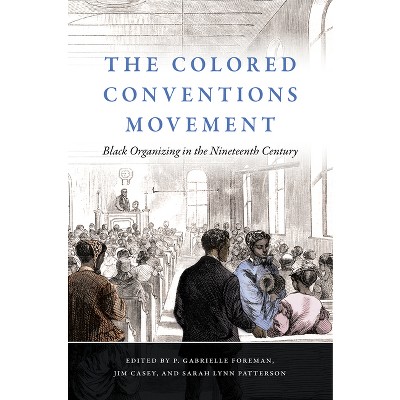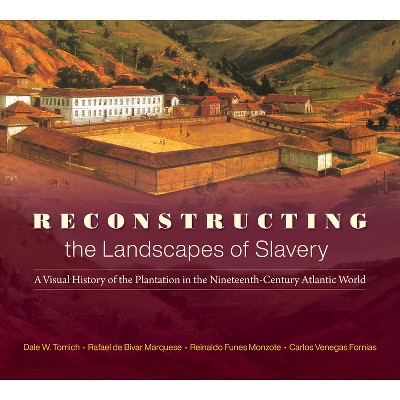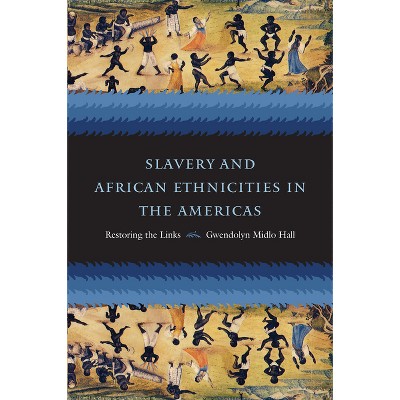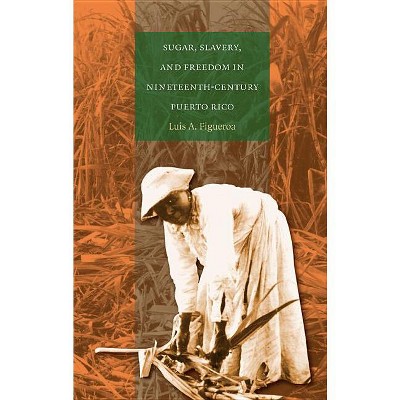Sponsored

Slavery in North Carolina, 1748-1775 - 2nd Edition by Marvin L Michael Kay & Lorin Lee Cary (Paperback)
In Stock
Sponsored
About this item
Highlights
- Michael Kay and Lorin Cary illuminate new aspects of slavery in colonial America by focusing on North Carolina, which has largely been ignored by scholars in favor of the more mature slave systems in the Chesapeake and South Carolina.
- About the Author: Marvin L. Michael Kay and Lorin Lee Cary are professors emeriti of history at the University of Toledo.
- 420 Pages
- History, United States
Description
About the Book
Shows that slaves in colonial North Carolina retained significant elements of their native heritage because their owners were reluctant to help them acculturate to white society. (Please see cloth edition, published 8/95.)Book Synopsis
Michael Kay and Lorin Cary illuminate new aspects of slavery in colonial America by focusing on North Carolina, which has largely been ignored by scholars in favor of the more mature slave systems in the Chesapeake and South Carolina. Kay and Cary demonstrate that North Carolina's fast-growing slave population, increasingly bound on large plantations, included many slaves born in Africa who continued to stress their African pasts to make sense of their new world. The authors illustrate this process by analyzing slave languages, naming practices, family structures, religion, and patterns of resistance.Kay and Cary clearly demonstrate that slaveowners erected a Draconian code of criminal justice for slaves. This system played a central role in the masters' attempt to achieve legal, political, and physical hegemony over their slaves, but it impeded a coherent attempt at acculturation. In fact, say Kay and Cary, slaveowners often withheld white culture from slaves rather than work to convert them to it. As a result, slaves retained significant elements of their African heritage and therefore enjoyed a degree of cultural autonomy that freed them from reliance on a worldview and value system determined by whites.
From the Back Cover
Michael Kay and Lorin Cary make it possible for us to understand how much of pre-Revolutionary North Carolina functioned, and how an enduring segment of its population (African in origin) made its way in a new world. The scope of research, the reach of learning, and the wisdom of interpretation in this book are enormous.'Review Quotes
Kay and Cary have made an important contribution to our understanding of American slavery.
"Southern Cultures"
ÝMakes¨ a very important contribution to the study of early American slavery.
"Journal of Southern History"
Interesting, insightful, and necessary for a full understanding of slavery in colonial North Carolina.
"North Carolina Historical Review"
"Interesting, insightful, and necessary for a full understanding of slavery in colonial North Carolina.
"North Carolina Historical Review""
[Makes] a very important contribution to the study of early American slavery.
"Journal of Southern History"
A marvelously thorough work.
"Mississippi Quarterly"
Its main value is in forcing us to rethink what we believe about acculturation and the nature of slave society.
"Journal of American History"
About the Author
Marvin L. Michael Kay and Lorin Lee Cary are professors emeriti of history at the University of Toledo.Shipping details
Return details
Trending Non-Fiction


















